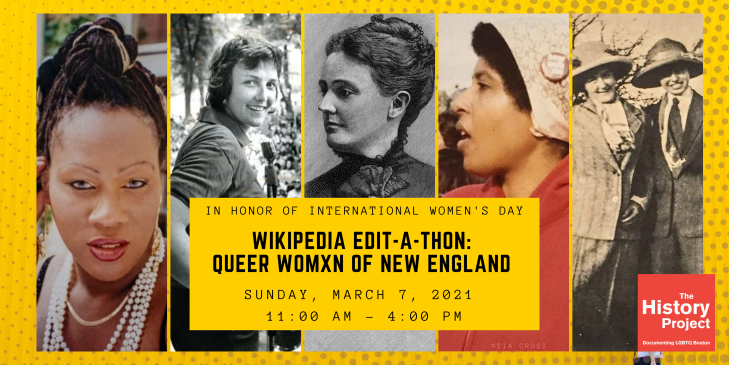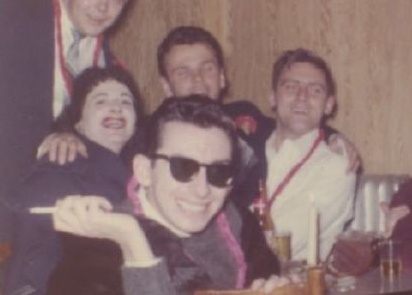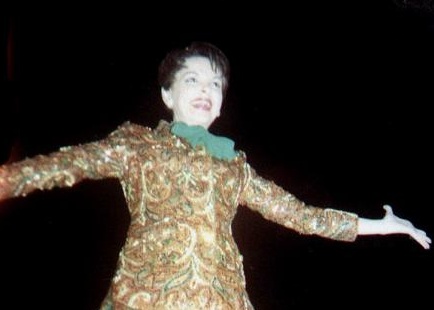Sort by:
Wikipedia Edit-a-thon: Queer Womxn of New England

BOSTON, MA (JANUARY 21, 2021) The History Project (THP), Boston’s LGBTQ community archives, is excited to invite the public to participate in its first Wikipedia Edit-a-thon. Did you know that only about 18% of all biographies on Wikipedia are about womxn? Help The History Project to improve the digital visibility of womxn and celebrate International Women’s Day by editing and adding articles on Wikipedia on March 7, 2021 from 11:00 AM to 4:00 PM.
Participants in the Wikipedia Edit-a-thon will learn more about queer womxn of New England including Sarah Orne Jewett, Elaine Noble, Rita Hester and Beverly Smith, among others. Reference materials and a pre-reordered training presentation on how to edit Wikipedia entries will be provided for participants, and a Zoom room will be available for participants to ask questions, socialize, and share their work.
“During these times of social distancing, it’s so wonderful to be able to plan a virtual event to bring the queer community together, learn more about the contributions of womxn, and make those contributions clear on Wikipedia,” says Executive Director Joan Ilacqua. “It’s our mission to share LGBTQ history, and we look forward to improving and updating the internet’s free and open encyclopedia.”
Tickets are available at: https://queerwomxn.eventbrite.com. This event is free and open to the public, donations to support The History Project’s mission to document, preserve, and share LGBTQ history are graciously accepted.
Top Related Stories
Introducing Julia Greider, Board of Directors
The History Project Board of Directors and staff are pleased to announce that Julia Greider (she/her) [...]
The History Project Board of Directors and staff are pleased to announce that Julia Greider (she/her) [...]
On the Cusp of Liberation: LGBTQ Voices from the 1960s
Originally published in 2015 on Mark Krone's blog Boston Queer History. In memory, each decade has [...]
Originally published in 2015 on Mark Krone's blog Boston Queer History. In memory, each decade has [...]
Meet Me at Trafton’s
Originally published in Boston Spirit Magazine, May/June 2013, and on Mark Krone's blog Boston Queer History [...]
Originally published in Boston Spirit Magazine, May/June 2013, and on Mark Krone's blog Boston Queer History [...]


